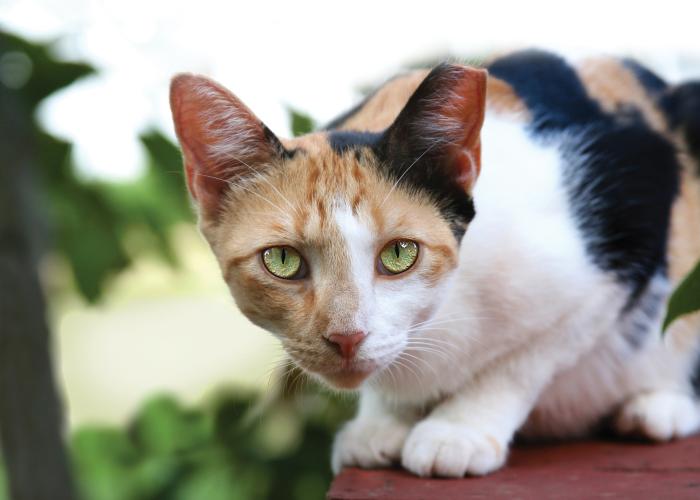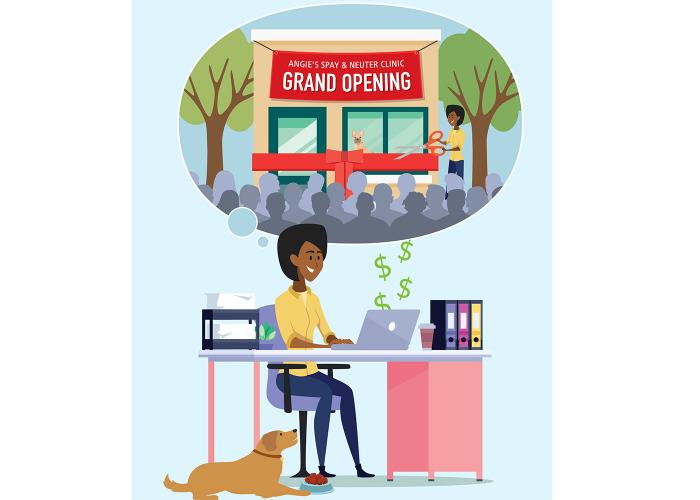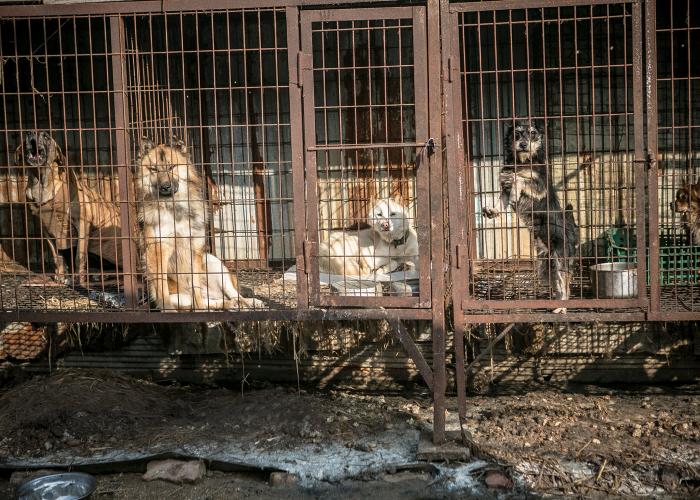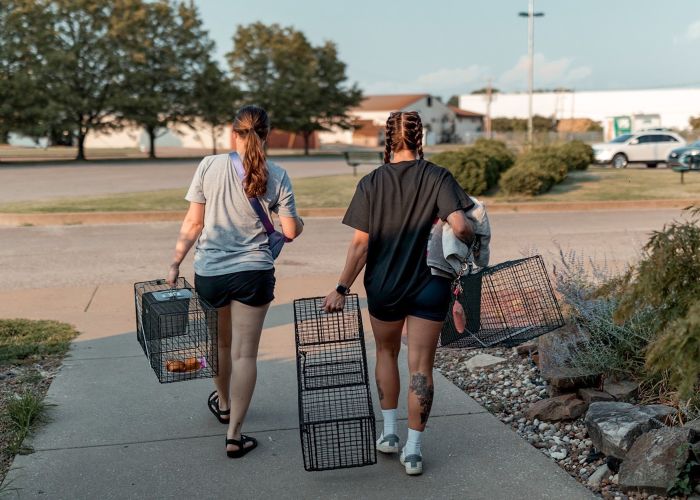Humans of Animal Advocacy: Dr. Azalia Boyd
Trailblazing veterinarian discusses the importance of cultural intelligence in animal care fields
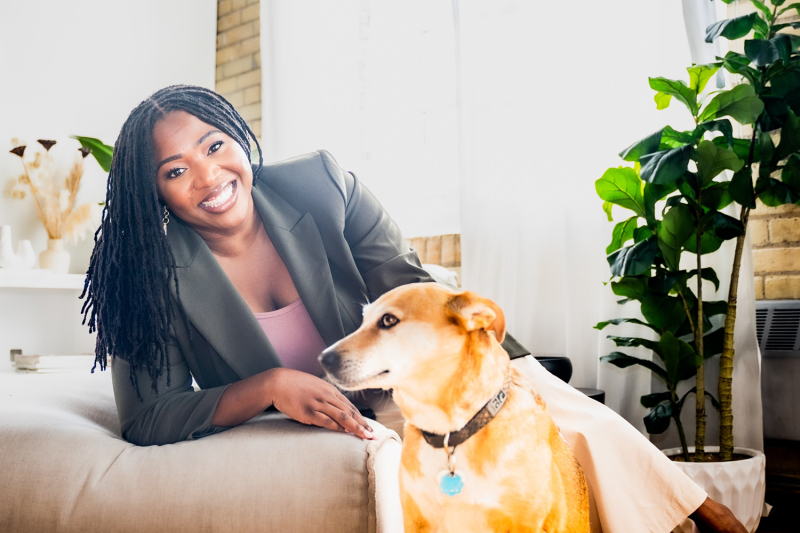
Dr. Azalia Boyd is known for integrating cultural respect and understanding into every layer of her work—whether she’s prioritizing the needs of her clients and their companion animals, consulting with national organizations, mentoring vet students or amplifying underrepresented voices in the field through her Critters and Cultures podcast.
Raised in a Caribbean immigrant household in New York City, Boyd grew up surrounded by cultural diversity. From a young age, her empathic nature and love for math and science led her to envision a career in human medicine. But while studying biology at Tuskegee University, Boyd was intrigued by her roommate’s stories about animal sciences and the unique challenges of veterinary medicine. Within a week, she’d changed her major.
After graduating from Tuskegee University’s College of Veterinary Medicine, Boyd began working in private practice and experienced a culture shock. As a young Black woman in a white-dominated profession, she often felt the pressure to prove not just her clinical expertise but her right to be in the room at all. She witnessed how systemic bias and stereotyping impacted not only her and her colleagues but also clients and their pets. Those early experiences left a lasting impact on her.
Today, Boyd is on a mission to cultivate a community of culturally intelligent animal care professionals. Through her podcast and Boyd Veterinary Services and Consulting, she’s promoting greater diversity in the veterinary profession and working with animal welfare organizations to reimagine what compassionate animal care can look like.
In this edited interview, Boyd shares the importance of cultural respect and understanding in the animal care field.
In your work, you talk about the healing power of the human-animal bond. How would you describe that bond, and how can animal welfare professionals either nurture or damage that bond?
Research shows that the human-animal bond can improve human health and help us live longer, but there’s also a kind of soul healing that science can’t explain. Our animals love us, accept us and help us feel whole in a way few things can. And for so many of us—no matter our background or what we have or don’t have—that kind of love and healing is exactly what we need.
As animal welfare and veterinary professionals, we must recognize the responsibility we carry in how that bond is supported or harmed. And the truth is, we damage it when we lead with judgment instead of curiosity and compassion.
When someone walks into a clinic or shelter and is told they’re irresponsible for feeding their pet store-brand food, for letting their dog sleep outside or for delaying a spay/neuter surgery, that judgment creates distance. What often happens is they don’t come back, or they don’t ask more questions. They retreat from the very spaces that are supposed to help them. When that happens, we lose the opportunity to build trust, offer care and nurture a relationship that could ultimately lead to better outcomes for the pet and for the person.
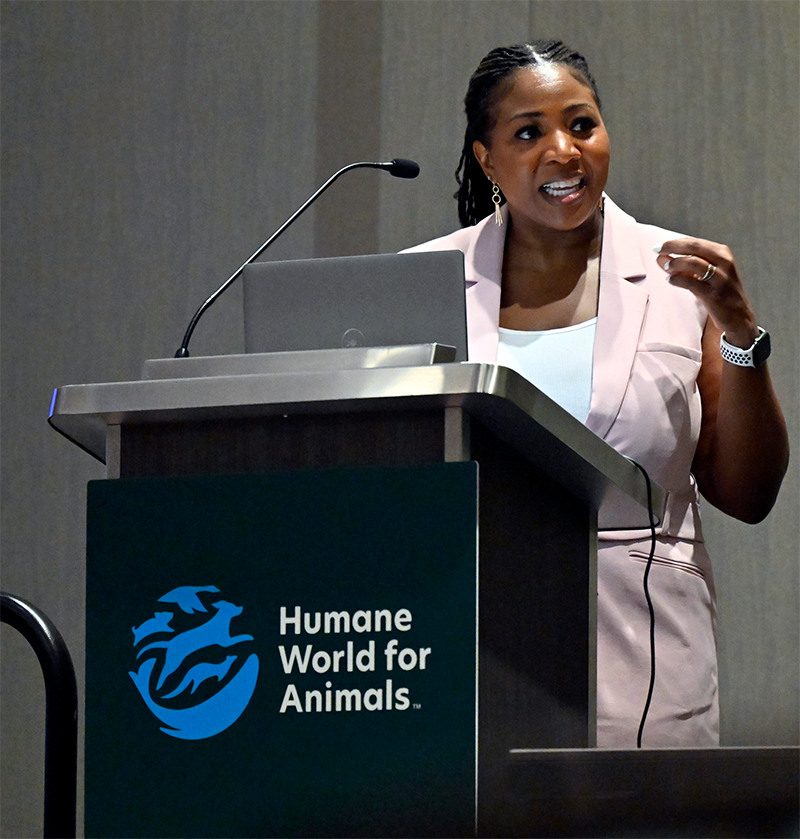
How can standards around pet ownership create barriers for marginalized communities?
The standards we often associate with “responsible” pet ownership are usually rooted in middle-class, Western and often white-centric ideals. These ideals assume access, time and resources that not everyone has. They often ignore things like housing and financial insecurity, cultural differences and personal beliefs.
That tension is part of what led me to create the Critters and Cultures podcast. It grew from a desire to hold space for the stories, perspectives and lived experiences that often go unheard in animal care. A space where I become completely curious, listen, learn and reflect. That’s what I hope others get from it too.
The reality is that most people love their animals, truly and deeply, even when they can’t or choose not to follow the textbook version of pet ownership. That love is powerful and real, and it shows up in people who have everything and in people who have very little.
How can we promote animal welfare while respecting cultural and socioeconomic differences?
What we owe people isn’t a rigid checklist. What we owe them is a willingness to understand their reasoning. When we ask questions from a place of curiosity rather than critique, we begin to open the door to understanding. We create space for more inclusive narratives. We allow people to feel seen and respected.
And in doing that, we start to build something stronger than compliance. We build trust. Our job isn’t to decide who’s worthy of loving an animal. Our job is to make sure that the love people already have for their animals is supported, affirmed and allowed to thrive.
Our job isn’t to decide who’s worthy of loving an animal. Our job is to make sure that the love people already have for their animals is supported, affirmed and allowed to thrive.
What actions can folks working in animal welfare take to support the human-animal bond in diverse communities?
I know it sounds simple, maybe even a little cliché, but the first thing I would say is to listen more. And sometimes, just listen. Not with the goal of jumping in to correct or fix, but with the intention of understanding. My parents always reminded me, “You’ve got two ears and one mouth for a reason.” If we use them that way, we can begin to understand the “why” behind people’s choices instead of assuming we already know.
Once we listen, then we can ask better questions that are rooted in genuine curiosity, not judgment. That alone goes a long way in honoring someone’s background, beliefs and lived experience. You cannot understand culture or context if you’re always talking.
The second thing I’d say is to not fall into the trap of thinking you’re the exception. The “I treat everyone the same” or “I’m one of the good ones” mindset doesn’t leave room for reflection, and it certainly doesn’t leave room for growth. We all have biases. We all carry our own stories, and so does everyone who walks through that door.
A lot of those stories, including cultural norms and personal traumas, are beneath the surface. You may not see them, but they shape how people care for their animals, how they engage with services and how safe they feel in your space.
And finally, I would say to lead with love. I know some people say, “lead with curiosity,” and that’s true too, but I think love takes it a step further. Love means creating a space where people do not have to earn dignity. It means choosing compassion over control. And it means staying committed to the belief that if someone is standing in front of you trying to care for their animal, there is love already there. Your job is to protect that love, not punish it.


